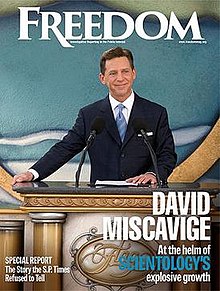
The Church of Scientology has been involved in numerous court disputes across the world. In some cases, when the Church has initiated the dispute, questions have been raised as to its motives. The Church of Scientology says that its use of the legal system is necessary to protect its intellectual property and its right to freedom of religion. Critics say that most of the organization's legal claims are designed to harass those who criticize it and its manipulative business practices.
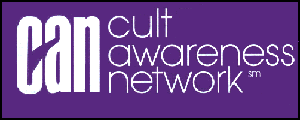
The Cult Awareness Network (CAN) was an anti-cult organization founded by deprogrammer Ted Patrick that provided information on groups it considered "cults", as well as support and referrals to deprogrammers. It operated from the mid 1970s to the mid 1990s in the United States.

Since its inception in 1954, the Church of Scientology has been involved in a number of controversies, including its stance on psychiatry, Scientology's legitimacy as a religion, the Church's aggressive attitude in dealing with its perceived enemies and critics, allegations of mistreatment of members, and predatory financial practices; for example, the high cost of religious training:191 and perceived exploitative practices. When mainstream media outlets have reported alleged abuses, representatives of the church have tended to deny such allegations.
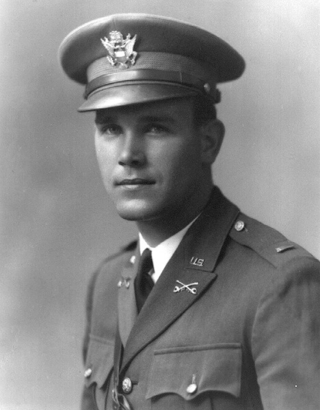
Leroy Fletcher Prouty served as Chief of Special Operations for the Joint Chiefs of Staff under President John F. Kennedy. A colonel in the United States Air Force, he retired from military service to become a bank executive. He subsequently became a critic of U.S. foreign policy, particularly the covert activities of the Central Intelligence Agency (CIA), which he believed was working on behalf of a secret world elite.

David Miscavige is an American Scientologist who is serving as the second and current leader of the Church of Scientology. His official title within the organization is Chairman of the Board of the Religious Technology Center. RTC is a corporation that controls the trademarks and copyrights of Dianetics and Scientology. He is also referred to within the Scientology organization as "DM", "COB", and "Captain of the Sea Org".
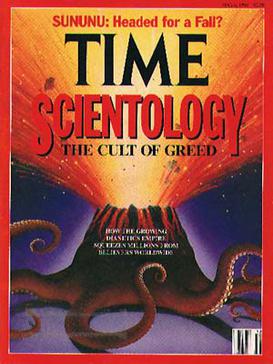
"The Thriving Cult of Greed and Power" is an article, written in 1991 by U.S. investigative journalist Richard Behar, which is highly critical of Scientology. It was first published by Time magazine on May 6, 1991, as an eight-page cover story, and was later published in Reader's Digest in October 1991. Behar had previously published an article on Scientology in Forbes magazine. He stated that he was investigated by attorneys and private investigators affiliated with the Church of Scientology while researching the Time article, and that investigators contacted his friends and family as well. Behar's article covers topics including L. Ron Hubbard and the development of Scientology, its controversies over the years and history of litigation, conflict with psychiatry and the U.S. Internal Revenue Service, the suicide of Noah Lottick, its status as a religion, and its business dealings.

The Church of Scientology is a group of interconnected corporate entities and other organizations devoted to the practice, administration and dissemination of Scientology, which is variously defined as a cult, a business, or a new religious movement. The movement has been the subject of a number of controversies, and the Church of Scientology has been described by government inquiries, international parliamentary bodies, scholars, law lords, and numerous superior court judgements as both a dangerous cult and a manipulative profit-making business.

The Fort Harrison Hotel has served as the main building of the Flag Land Base, the Church of Scientology's campus in Clearwater, Florida. It is owned and operated by the Flag Service Organization.

This is a Timeline of Scientology and its forerunner Dianetics, particularly its foundation and development by author L. Ron Hubbard as well as general publications, articles, books and other milestones.

Recognition of Scientology and the Church of Scientology varies from country to country with respect to state recognition for religious status, charitable status, or tax exempt status. Decisions are contingent upon the legal constructs of each individual country, and results are not uniform worldwide. For example, the absence of a clear definition for 'religion' or 'religious worship' has resulted in unresolved and uncertain status for Scientology in some countries.

Scientology is a set of beliefs and practices invented by the American author L. Ron Hubbard, and an associated movement. It is variously defined as a cult, a business, a religion, or a scam. Hubbard initially developed a set of ideas that he called Dianetics, which he represented as a form of therapy. An organization that he established in 1950 to promote it went bankrupt, and Hubbard lost the rights to his book Dianetics in 1952. He then recharacterized his ideas as a religion, likely for tax purposes, and renamed them Scientology. By 1954, he had regained the rights to Dianetics and founded the Church of Scientology, which remains the largest organization promoting Scientology. There are practitioners independent of the Church, in what is referred to as the Free Zone. Estimates put the number of Scientologists at under 40,000 worldwide.

John Carmichael is president of the Church of Scientology of New York. Carmichael was born a Presbyterian and became involved in Scientology after reading the book Dianetics: The Modern Science of Mental Health while attending Cornell University. He became an ordained minister with the Church of Scientology in 1973, and in 1985 he headed the organization's operations in the State of Oregon.
Leisa Goodman is an American official of the Church of Scientology. As of 2005, she served as the Human Rights Director for the Church of Scientology International. She had previously served as a spokesperson for the Church and served as its media relations director.
Kurt Weiland is a native of Austria and an executive in the Church of Scientology International. He is director of external affairs for the Church of Scientology's Office of Special Affairs, and Scientology's vice president of communications. He is a member of the organization's board of directors, and handles government, legal and public affairs for Scientology. He has often represented Scientology to the press as a media spokesman. Weiland works out of the Church of Scientology's offices in Los Angeles, California.

The Church of Scientology has operated in Germany since 1970. German authorities estimate that there are 3,500 active Scientologists in Germany as of 2019. The Church of Scientology gives a membership figure of around 12,000. The Church of Scientology has encountered particular antagonism from the German press and government and occupies a precarious legal, social, and cultural position in Germany.

The Scientology movement has been present in Canada since at least the 1960s. According to the most recent available census data, there were 1,745 individuals in Canada identifying as Scientologists in 2011. Scientology has encountered difficulties in obtaining status as a tax exempt organization, as has happened in other countries.
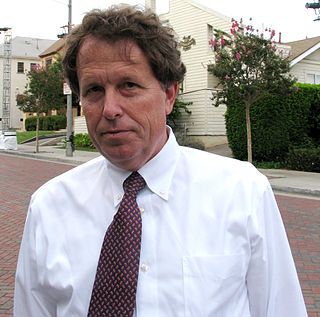
Kendrick Lichty Moxon is an American Scientology official and an attorney with the law firm Moxon & Kobrin. He practices in Los Angeles, California, and is a lead counsel for the Church of Scientology. Moxon received a B.A. from American University in 1972, and a J.D. degree from George Mason University in 1981. He was admitted to the Washington, D.C., bar association in 1984, and the State Bar of California in 1987. Moxon's early work for the Church of Scientology involved legal affairs, and he also held the title of "reverend". He worked out of the Scientology intelligence agency known as the Guardian's Office (GO), and was named as an unindicted co-conspirator after the Federal Bureau of Investigation's investigation into criminal activities by Scientology operatives called "Operation Snow White". An evidence stipulation in the case signed by both parties stated he had provided false handwriting samples to the FBI; Moxon has since said that he did not "knowingly supply" false handwriting samples.

The intersection of Scientology and abortion has a controversial history which began with Scientology founder L. Ron Hubbard's discussion of abortion in his 1950 book Dianetics: The Modern Science of Mental Health. Hubbard wrote in Dianetics that abortion and attempts at abortion could cause trauma to the fetus and to the mother in both spiritual and physical ways. Scientologists came to believe that attempted abortions could cause traumatic experiences felt by the fetus, which would later be remembered as memories referred to in Scientology as "engrams". In the Scientology technique called Auditing, Scientologists are frequently queried regarding their sexual feelings and behaviors. These questions about Scientologists' sexual behavior are often posed to members during "security checks", a specific form of auditing sessions where individuals are required to document their divergence from the organization's ethics. One of the questions asked in these security checks is, "Have you ever been involved in an abortion?".
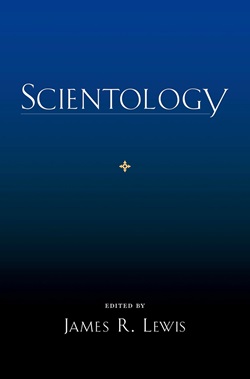
Scientology is an edited volume about Scientology, and the Church of Scientology organization, published in 2009 by Oxford University Press. It was edited by the sociologist James R. Lewis. Chapters in the work give an overview and introduction to the organization, and present analysis of the movement from the perspective of sociology. The book compares the organization to religious movements, and goes over its history of controversy. It delves into the practices of the organization and the activities undertaken at its facilities.

Scientology front groups are those groups named or operated in such a way as to disguise their association with the Church of Scientology (COS). COS uses front groups to promote its interests in politics, to make itself appear legitimate, and to recruit. The Times published, "[The church attracts] the unwary through a wide array of front groups in such businesses as publishing, consulting, health care and even remedial education." Many of the groups are founded on pseudoscience, named disingenuously, and underplay their links to Scientology.
